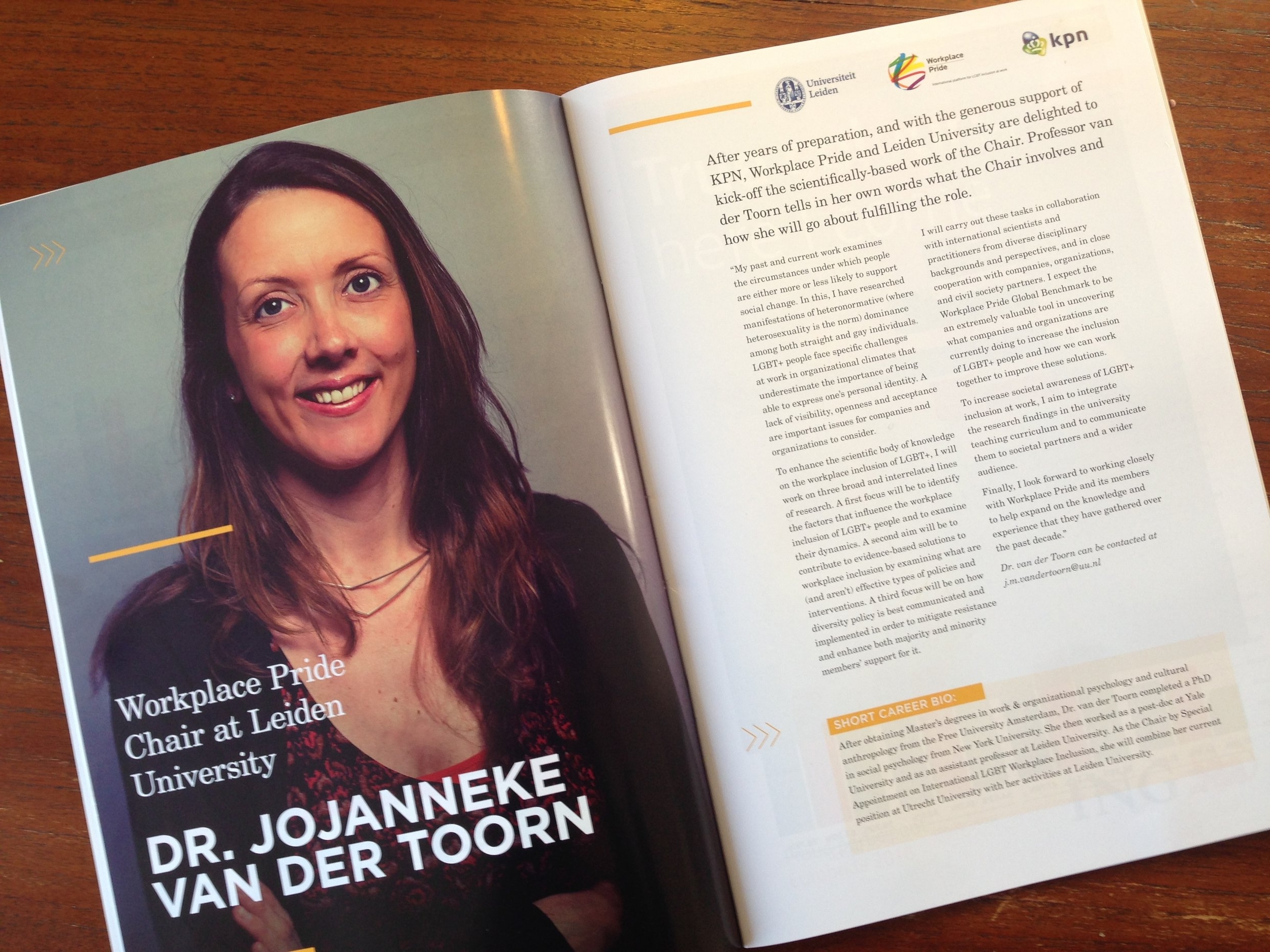I am excited to announce that starting January 1st 2017, I will be taking up a new position as the Workplace Pride Chair at Leiden University!
The Workplace Pride Chair is instituted by the Workplace Pride Foundation and Leiden University with the generous support of KPN and provides a focused and scientific approach to studying and improving LGBT inclusion in the workplace both domestically and internationally.
As the Chair, I intend to work on three broad and interrelated lines of research. A first focus will be to identify the factors that influence the workplace inclusion of LGBT+ people and to examine their dynamics. A second aim will be to contribute to evidence-based solutions to workplace inclusion by examining what are (and aren’t) effective types of policies and interventions. A third focus will be on how diversity policy is best communicated and implemented in order to mitigate resistance and enhance both majority and minority members’ support for it.
I will be combining it with my position at Utrecht University so am unlikely to get bored :)
Read more here











